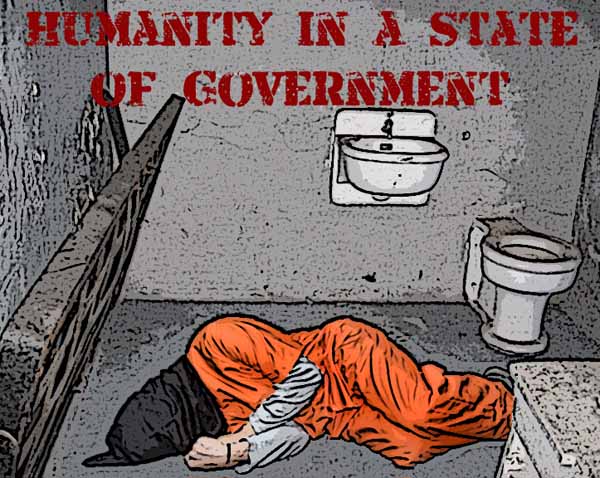|
|||||||||||||
|
Law Effect People? By Punkerslut
All throughout history, humanity has been working to change their surroundings. In the beginning, this meant altering our atmosphere and the earth; forests were dug up, marshes were drained, and oceans were poisoned with chemicals. The possession of the planet by humans has been the source of environmental devastation. Having established itself as a civilization, humanity has tried to change and control its social environment. This is not just an impulse of a few who already dominate the social order; it is a desire that naturally arises with the social instinct. These desires to change the social environment can be progressive, as much as they can be regressive. An individual can be offended by the wanton violence of the state against a particular minority group; or, in reverse, they could be offended by the presence of a different racial or cultural group. In the one case, the individual is seeking to limit or eliminate the suffering of others; whereas in the other case, the individual is seeking to hurt others. And, there are many mixed positions. Those who sought the emancipation of workers in Russia established concentration camps for "the enemies of the Proletariat." Just as many Pan-African Nationalists seek a "strong, centralized government" to deal with "the enemies of the African peoples." These methods seek the protection and liberty of the people by coercion and violence. Abolitionists sought the end of slavery, just as Prohibitionists sought to end peoples' right to their conscience. Unionists sought to organize and protect the interests of the workers, just as much as Nationalists resisted them for "destroying national identity." There is the good impulse, that comes from sympathy, tolerance, and open-mindedness -- the progressive cause. And there is the bad impulse, that comes from hate, bigotry, and ignorance -- the regressive cause. The traditional method of effecting social change has been through the use of the law. Particular movements have sought to implement their program into the state's enforcement. To make a particular activity legal or illegal. It will be treated as a crime, like murder or rape. Or it will be treated as a liberty, like freedom of speech and the right to a trial. But the most popular, common method of effecting a social change has been to write it into the government's law. But how effective has this method been in effecting social change? The inquisition tortured people with the blessing of the law because they didn't believe in the church's ideas; and civil rights activists have begged district attorneys to protect minority groups.
The result of a regressive law is hardly debatable. When people are thrown in prison for "worshiping the wrong god," they become less likely to convert. When individuals are tortured, abused, or threatened, they do not see the change as positive. Many are wise enough to evade such legal prosecution, but they, too, must hide their culture -- they must become silent about the significant, meaningful parts of their life. This is the effect of laws when they are regressive: working to exploit the poor and the common to the benefit of the rich and the powerful. But all who support the state also support progressive laws. The eight-hour day, outlawing discrimination in employment, trial by jury in place of trial by judges, laws by elected officials in place of laws by monarchs and kings. These are all progressive laws, of varying degrees, and all who seek to change society through the state are the preachers of progressive laws. The progressive laws might be made with a knowledge of the peoples' nature and with the intention to improve the happiness of all. But, they will be met with the same resistance. An individual, unaware that the eight-hour day would improve their condition, would resist the law. Women have resisted gender equality, peasants have been terrified of the revolution, and colonized people have mocked independence and freedom. There is an idea that genuinely contributes to the happiness of the individual -- but they will resist it, because it is forced upon them. Whether or not it's true, the individual will think that only they can know what's best for themselves. Where they are against something, the idea will be subject to change -- they might accept a good idea. But where they are persecuted, threatened with imprisonment and prohibited from speaking their ideas, they will always resist it. They have been made a criminal by society, a fugitive by the moral guardians of "law and order." When something is enforced upon the individual, and they do not see the justice of the idea, it alienates them from the thought. And where they might have accepted it before, they will never accept it now. Based on how people react to their social environment, it is true that the only individual does know what is best for themselves. In regards to bad laws, the people resist them and become alienated from society. And in regards to good laws, the people should be aware of them already, and where they are not, they will resist them. In the one case, you are excluding people from society. In the other case, you are making people fear things that are good for them. These are the results of the laws, which try to regulate this or that behavior. This is done through through domination: but where there is domination, there cannot be cooperation. To achieve a society where mutual cooperation becomes the basis of all social situations, we must have anarchy.
Punkerslut,
|



